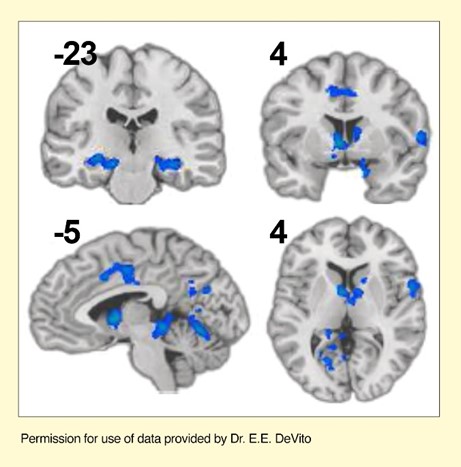 Better neural efficiency in brain activity during a cognitive task (blue) was associated with several evidence-based behavioral treatments.
Better neural efficiency in brain activity during a cognitive task (blue) was associated with several evidence-based behavioral treatments.Behavioral treatments for substance use disorders affect brain function in ways that may help patients stay the course in recovery despite relapse triggers and impulses. In a recent study supported by the National Institute on Drug Abuse, cognitive behavioral therapy (CBT) and contingency management (CM) increased brain efficiency in regions that coordinate cognitive control—the ability to set goals and stay on task despite conflicting cues and distractors. CBT focuses on enhancing coping skills as well as analyses of factors involved in continued drug use. CM offers small rewards, such as cash stipends or coupons for retail goods--- for adherence to treatment.
Cocaine-dependent patients underwent brain imaging while performing a task that challenges cognitive control (Stroop test). The images revealed that after 12 weeks of CBT and CM, the patients’ cognitive control regions accomplished the task more efficiently—with less expenditure of energy—compared with before. The amount of efficiency improvement reflected the extent of the patients’ engagement with treatment, as measured by CBT sessions attended and CM prizes earned. CBT and CM, which are often given together, increased efficiency in different brain regions that support cognitive control in complementary ways.
Study:
- DeVito, E.E. et al. Functional neural changes following behavioral therapies and disulfiram for cocaine dependence. Psychology of Addictive Behaviors.
